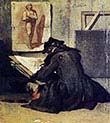Jean-Baptiste-Siméon Chardin
1699-1779 France/Baroque
Click an Image to Enlarge
the jar of apricots
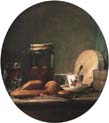
the cut melon

the basket of wild
strawberries

card
tricks
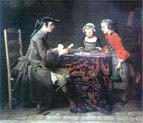
Draughtsman

Vase
of Flowers

First
Wife
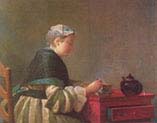
The
Governess

Servant
Returning

Saying
Grace

Pestle
and Mortar
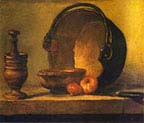
Kitchen
Still Life

Grapes and
Pomegranates
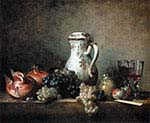
Girl with a
Shuttlecock

Cake

the cellar boy
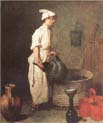
Drinking
Fountain

The Diligent
Mother

Child with
a Teetotum

A Lean Diet with
Cooking Utensils
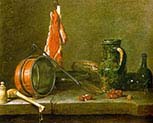
Attributes
of Music

Hunting
Dog

House
of Cards

Madame
Chardin

Peaches with
Walnuts

Pears and
Walnuts

Sealing
the Letter
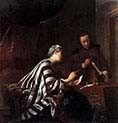
Self
Portrait

Cat
and Fish

Cat
and Rayfish

A
Pheasant
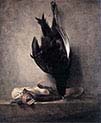
Jar
of Olives

Pipe
and Jug

Two
Rabbits

Attentive
Nurse

The Attributes
of Art

Painting
and-
Sculpture
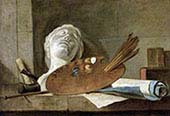
Attributes
of Arts

The
Buffet

The
Canary
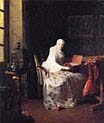
The House
of Cards
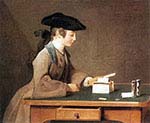
The Kitchen
Maid

The
Laundress
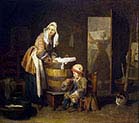
The
Ray

The
Silver Cup

The Silver
Tureen
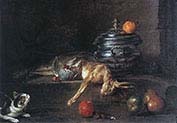
The Soap
Bubble

the
Schoolmistress
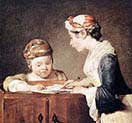
Youth with
a Violin

Water Glass
and Jug
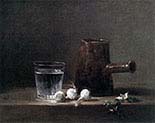
Young
Sketcher
